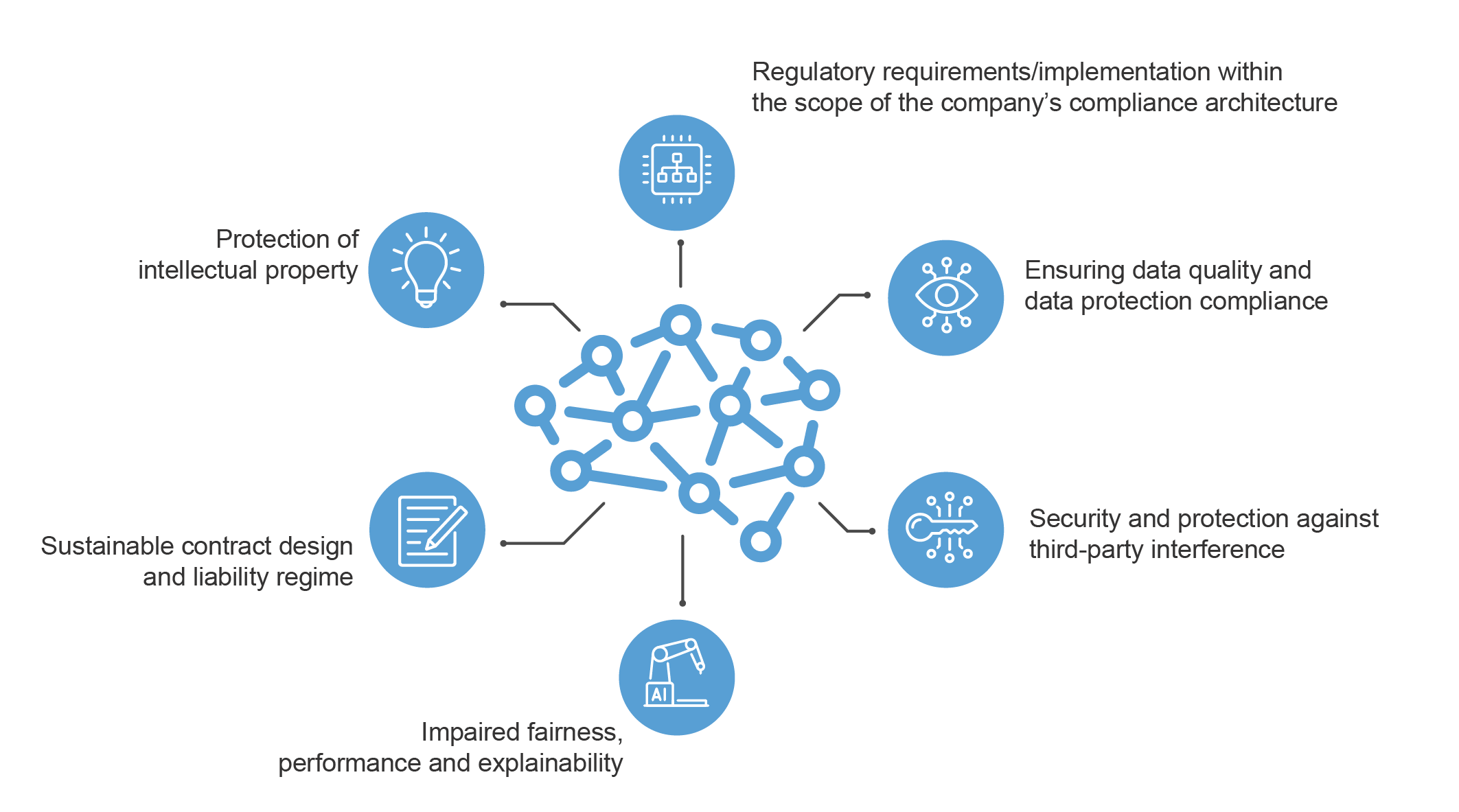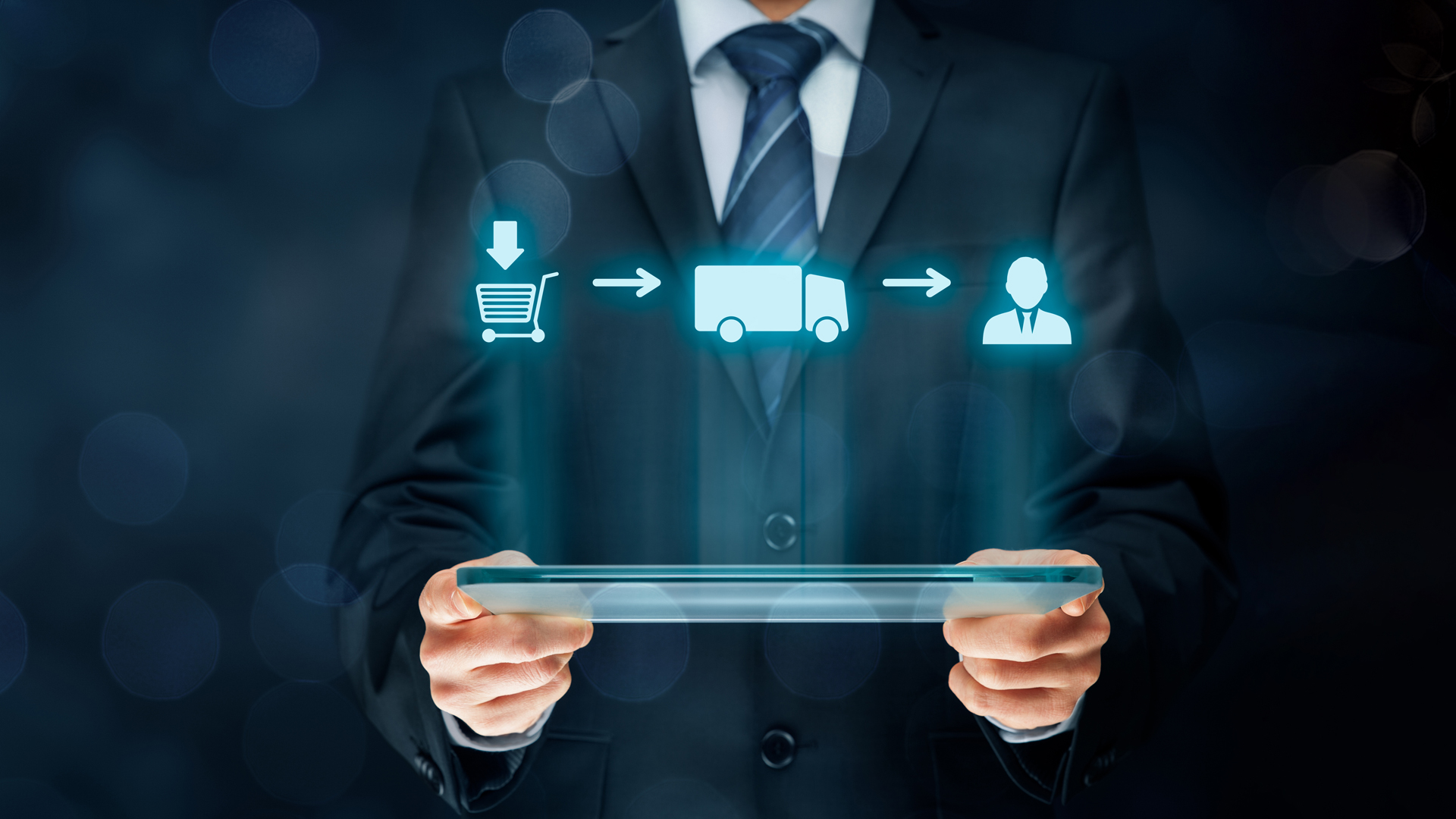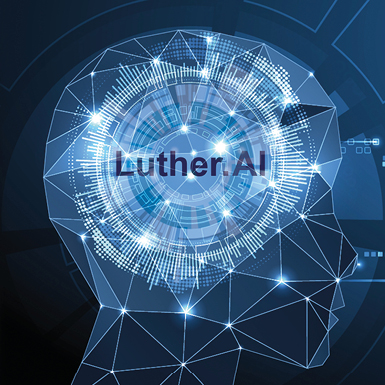Artificial intelligence (AI): a driver of growth and innovation
Artificial intelligence – and generative AI in particular – harbours potential for business growth, productivity leaps and innovation. The global economy could seize on the tremendous opportunities brought by the ongoing advancement of this technology for the benefit of all: one institute estimates annual productivity gains of up to USD 4.4 trillion. Company managers will quickly realise that there are advantages to be had in research and development, in particular software development, product and customer service, marketing and sales. Service and development industries, including banking, high tech, life science and healthcare, telecommunications and insurance, are in a privileged position and can enjoy a first-mover advantage. AI will also become an integral part of all other industries.
The use of artificial intelligence in business processes and organisations is posing a challenge to companies, not least due to the EU AI Act. Companies need to have an in-depth insight into the organisation and product world to decide whether and how to use AI. In our experience, a risk-orientated audit helps to ensure compliance when dealing with customers and regulatory authorities. The following audit clusters are particularly relevant:
- Regulatory requirements/implementation within the company’s own compliance architecture
- Ensuring data quality and compliance with data protection
- Protection of intellectual property
- Sustainable contract drafting and liability regime
- Impaired fairness, performance and explainability
- Security and protection against external interference
Our close cooperation and continuous dialogue with our clients, technology leaders and research and teaching institutions means that we have our finger on the pulse of technological developments and all relevant legal and tax issues. Guided by the reports, we engage in a joint dialogue and validate and continuously adapt the solutions developed.

Areas of advice
Luther offers companies and public sector organisations an AI compliance audit to analyse AI initiatives from a legal and regulatory perspective. Based on the results of this audit, the company receives a report outlining the current legal resilience of the AI used and whether its use is legally compliant. The audit can relate to single issues if required.
The audit focuses on the use of data, the implementation of AI algorithms and whether the AI-relevant products or services fulfil legal requirements, in the following areas in particular:
- Data protection
- Copyright
- Consumer protection
- Employment law
- EU law
Our audit is based on the classification and the necessary steps in dealing with the various forms of AI as laid down in the EU AI Act. The audit report helps companies to protect themselves, identify gaps and adapt their structures if necessary.
AI systems use personal data in a multitude of ways. For companies, the secure handling of data is paramount. We check the way data is being handled and identify opportunities for improvement. Before you use AI for the first time, we build a structure that ensures compliance with data protection requirements and includes both technical solutions and procedural guidelines. This way we can guarantee data security for companies/public authorities and ensure compliance with laws such as the GDPR.
AI-based innovations give rise to value-creating assets that need protection against imitation and misuse. By advising companies on their IP strategies for AI, we help them to develop a comprehensive protection concept for their AI technologies and products. This allows them to improve their market position and build a lasting competitive advantage.
By having Luther perform an AI innovation analysis, you create planning and legal certainty as to what rights you need to secure. Luther can help you protect these rights with services such as patent applications, trademark registrations and copyright protection. We also advise you on the licensing and enforcement of your IP rights.
AI projects often involve complex partnerships, technology transfers and licence agreements. When it comes to drafting contracts, our aim is to reduce complexity and enable innovation while at the same time minimising risks.
Our initial analysis involves examining the specific context of the AI project to identify relevant legal challenges and opportunities. Our experts develop customised contract drafts that reflect your objectives and at the same time offer mechanisms to protect you against risks. We guide you through the entire negotiation process and secure the best possible contract terms for you.
The regulatory landscape for AI technologies is constantly evolving and varies from industry to industry and from country to country. The requirements laid down in the AI Act are of particular importance in the EU. Our regulatory advice relating to the development and use of AI provides specialised knowledge to ensure that your AI-based products are legally compliant in all corners of the globe.
Our clients benefit from our renowned product law expertise in this field as well, as we have the know-how needed to draw up declarations of conformity and regarding the notified bodies. In addition, we provide support in the preparation and submission of regulatory applications and documentation and make sure our clients comply with all the legal requirements of official audits.
Following a systematic approach, we conduct a comprehensive analysis of your AI applications to identify potential risks in the fields of law, technology and business operations. We then draw up customised risk management plans that include both preventive measures and response strategies to effectively minimise the risks identified.
As AI is deeply integrated into company processes and the way companies are organised, it also has a strong impact on the work environment and the workplace.
We ensure complete transparency for companies so they can see how AI applications affect their workforce and labour practices: employment law aspects – including the drafting of employment contracts, data protection in the workplace and compliance with health and safety regulations – speak for themselves. Our recommendations aim to both protect the rights of your employees and increase the operational efficiency of your company.
With our specialised advice, you can be sure that your working practices and conditions not only comply with legal requirements but are also optimally geared towards the integration of AI. This creates a positive work environment in which technology and employees work together harmoniously.
AI start-ups face unique challenges, from securing funding to protecting intellectual property and navigating complex regulatory landscapes. Our AI start-up advice offers comprehensive support to help companies overcome these obstacles and lay a solid foundation for lasting success.
Our approach is individually tailored to the specific needs and goals of your start-up. We offer a wide range of services including advice on starting a company, IP strategy development, compliance reviews and funding advice (including screening to identify potential funding). With a combination of legal expertise and a deep understanding of the AI sector as well as the entrepreneurial issues, we support your start-up in every phase of growth.
Our advice not only offers protection against legal risks but also helps to boost the competitiveness of your start-up. You benefit from clear, strategic guidelines that help you secure capital, protect your intellectual property effectively and overcome regulatory obstacles. With our support, you can focus on growing and scaling your AI start-up.
AI errors pose a huge liability risk. Luther protects companies from the legal and financial consequences of AI errors.
As a preventative service, we identify potential high-risk areas and establish monitoring processes – in other words strategies and legal frameworks designed to minimise the risk of AI errors and to define responsibilities. In the event of an incident, our team provides ad-hoc assistance by recording the incident, mitigating the impact and reducing future liability risks.
This creates trust among customers, partners and insurance companies.
It is crucial that companies operating in the field of AI technology understand the legal aspects. Our training courses and workshops on AI law are designed to provide companies’ interdisciplinary teams with the knowledge they need to proactively tackle and overcome legal challenges. A combination of theoretical knowledge and practical exercises prepares employees to manage legal risks effectively.
This not only helps to ensure compliance and the protection of the company but also promotes a culture of innovation in which legal considerations are seen as an integral part of the product development process.
Our training courses are conducted by AI law experts and tailored to the specific needs of your company. We cover a broad spectrum of topics, including data protection, intellectual property, liability issues and regulatory compliance. Our workshops use case studies, discussions and Q&A sessions to deepen your employees’ understanding of the subject matter.
News
Key Contacts >>
![[Translate to English:] KI Kanzlei A digital representation of a human face is depicted, created with blue and white particles and lines that suggest a network or data flow, set against a dark background. This image symbolizes technology, innovation, and the intersection of human intelligence with artificial intelligence.](/fileadmin/user_upload/artificial-int.-big-data.jpg)





